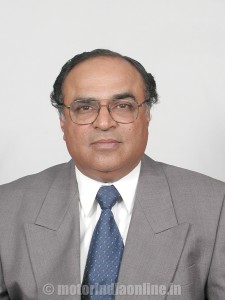India’s journey to achieve a 15 per cent growth in the manufacturing sector on a sustained basis requires a skillful adoption of automation technologies to raise productivity, consistency and effectively manage the complexities of varying business cycles. The benefits of ‘real-time’ industrial automation accrue not only to large industry (OEMs) but also to the connected supply chain which includes medium and small-scale industry partners. The ‘automation advantage’ is seen not only in the Indian automotive industry but also in several other growth sectors like defence production, food processing, pharma, packaging, FMCG, etc. The Indian automation industry, now worth $920 million, is growing at an annual rate of 20-25 per cent.

To address the evolving learning needs, the CII Southern Region organised its annual Conference on Industrial Automation with the theme “Discrete Manufacturing – Current Practices & Emerging Trends” in Chennai on December 9. The Automation Industry Association (AIA) supported the conference as the Knowledge Partner.
Mr. V. Narasimhan, Chairman, CII Manufacturing Competitiveness Sub-Committee, CII-SR, and Executive Director, Brakes India Ltd. (Foundry Division), in his welcome address, said globalization is fast picking up. Cheap labour doesn’t mean anything unless it proves productive. There is greater need now for productive labour transforming itself into optimum cost competitiveness. It is true that the level of GDP per worker and the GDP per manhour in India is far below that of developed nations. This productivity gap has to be reduced. Further, compensation and labour productivity are positively correlated, and while wages go up, industries have to necessarily enhance automation and invest in technology by way of substituting expensive labour. Involving heavy investment in research & development, automation solutions lead to three major changes in production technology – improved productivity and consistency, higher volume of production, and reduction in the rate of accidents.
Mr. Ashok Rao, Co-Chairman, CII Manufacturing Competitiveness Sub-Committee, and Managing Director, KGK Engineering, in his theme address, referred to the growing competition faced both locally and at the global level in terms of product offering, speed up changes, etc., not only in manufacturing but in IT generation. The cumulative effect of all this is that the velocity of change in IT generation or in product offering is much higher.
In his keynote address, Mr. P.V. Sivaram, Vice President, Automation Industry Association, and Managing Director, B&R Industrial Automation Pvt. Ltd., spoke on the impact of industrial revolution brought about through automation.
Mr. R. Balakrishnan, Sr. Vice President & Plant Head – Puduchery, Rane Madras Ltd., presented his case study on Automation Tools to Enhance & Manage Productivity, Quality & Safety.
Mr. K. Ramkumar, General Manager – Production Engg., Wabco India Ltd., in his presentation, expressed his expert views on tools which can enhance and manage product quality and cost.